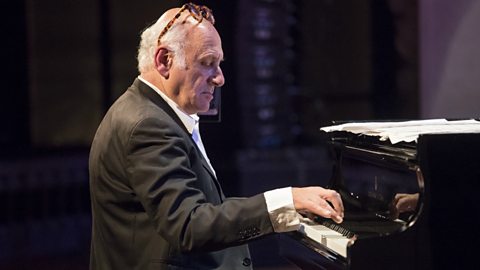Minimalist

Minimalist music developed in America in the 1960s at the same time as a similar movement in the art world. Minimalists wanted to strip art and music back to their basics in response to the large, emotional works of the Romantic and Modern eras.
A group of minimalist American composers started to use different techniques in their compositions, such as using technology to record, edit and sample their own music and the music of others.
The music created in the minimalist period was unlike any music created in previous periods and sounded nothing like anything you would find in the pop charts. It was a style that would bring popular and classical music together.
Examples of minimalist composers include:
- Steve Reich
- John Adams
- Philip Glass
- Terry Riley
Minimalist music can be recognised for:
- compositions based on short ostinatoA short melodic phrase that is repeated persistently or and patterns
- ostinatos looped in sequences to create almost hypnotic effects
- beats that shift to create tension in the music
Harmonically, minimalism makes use of simple chord progressions, adding extra notes and rhythms with layers of instruments and/or sounds.
Listen to Daniel Ciobanu play the 7th Movement from ‘Musica Ricercata’ by György Ligeti. You will hear many of the features of minimalist music as mentioned above.
Daniel Ciobanu performing 7th movement from ‘Musica Ricercata’ by György Ligeti
This minimalist piece was written for solo piano but used an ostinato in the left hand while the right hand plays two layers of sound to create polyphony.
John Adam's "Short Ride in a Fast Machine" is an example of minimalist music written for an orchestra. It is based on a repeating ostinato and also features a steady beat played on a woodblock. Other instruments, such as trumpet and piccolo play to different rhythms, creating interest and tension.
'Short Ride in a Fast Machine' by John Adams
Instruments
There is no standard grouping of instruments in minimalism. Acoustic instruments can be played alongside electronic instruments.
Structure
Minimalist music does not usually follow any formal structure, and many composers use lack of structure as a way to make their work stand out more to the listener.
This minimalist piece was written for solo piano but used an ostinato in the left hand while the right hand plays two layers of sound to create polyphony.
Uses for minimalist music
Minimalist music is often used for film and television scores due to the fact it can be very dramatic. Michael Nyman composed music for the film 'The Piano' and Mike Oldfield's 'Tubular Bells' was used in the soundtrack to the horror film 'The Exorcist'.
These composers have created music to build suspense and drama that matches what is happening in the film.